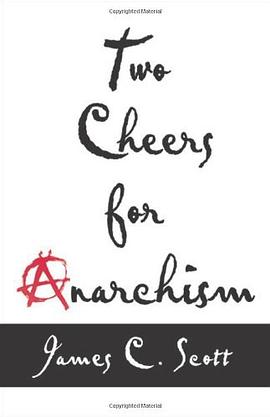Two Cheers for Anarchism
内容简介
James Scott taught us what's wrong with seeing like a state. Now, in his most accessible and personal book to date, the acclaimed social scientist makes the case for seeing like an anarchist. Inspired by the core anarchist faith in the possibilities of voluntary cooperation without hierarchy, "Two Cheers for Anarchism" is an engaging, high-spirited, and often very funny defense of an anarchist way of seeing - one that provides a unique and powerful perspective on everything from everyday social and political interactions to mass protests and revolutions. Through a wide-ranging series of memorable anecdotes and examples, the book describes an anarchist sensibility that celebrates the local knowledge, common sense, and creativity of ordinary people. The result is a kind of handbook on constructive anarchism that challenges us to radically reconsider the value of hierarchy in public and private life, from schools and workplaces to retirement homes and government itself. Beginning with what Scott calls "the law of anarchist calisthenics," an argument for law-breaking inspired by an East German pedestrian crossing, each chapter opens with a story that captures an essential anarchist "truth." In the course of telling these stories, Scott touches on a wide variety of subjects: public disorder and riots, desertion, poaching, vernacular knowledge, assembly-line production, globalization, the petty bourgeoisie, school testing, playgrounds, and the practice of historical explanation. Far from a dogmatic manifesto, "Two Cheers for Anarchism" celebrates the anarchist confidence in the inventiveness and judgment of people who are free to exercise their creative and moral capacities.
......(更多)
作者简介
James C. Scott (born December 2, 1936) is a American Sterling Professor of Political Science and Anthropology at Yale University. He is also the director of the Program in Agrarian Studies and a noted anarchist scholar.Scott is a Fellow of the American Academy of Arts and Sciences, has held grants from the National Science Foundation, the National Endowment for the Humanities, and the John Simon Guggenheim Memorial Foundation, and has been a fellow at the Center for Advanced Study in the Behavioral Science, Science, Technology and Society Program at M.I.T., and the Institute for Advanced Study, Princeton.
Scott lives in Connecticut, where he raises sheep.He received his bachelor's degree from Williams College and his MA and PhD (political science, 1967) from Yale. He taught at the University of Wisconsin–Madison until 1976, when he returned to Yale.
......(更多)
目录
......(更多)
读书文摘
被统治,就是被没有知识和美德可言的造物盯上,就是被监察,被窥探,被规范,被灌输,被说教,被注册和点名,被估算,被预测,被审查,被命令。被统治,就是在每一种规程、交往、行动上,被记录,被统计,被估价,被责令,被禁止,被改造,被调控,被矫正。
其实我们所有人都容易犯类似的错误,把外观上的有序等同于实践上的有序,同时把外观上的杂乱等同于无序。这是一种自然的、在我看来也是严重的错误。
冲击秩序的行为经过愤怒、挫败、暴力的激化后,将清楚传达出这样的信息:人们的诉求已经不能在现有的制度和法律框架内解决。所以,就他们违背法律的意愿而言,本质的一点不是种下失序的种子,而是要求设置一种更加公正的法定秩序。我们如今的法治相较从前要更加公正、更加自由,这也部分归功于那些勇于违抗不公法律的人。
......(更多)






